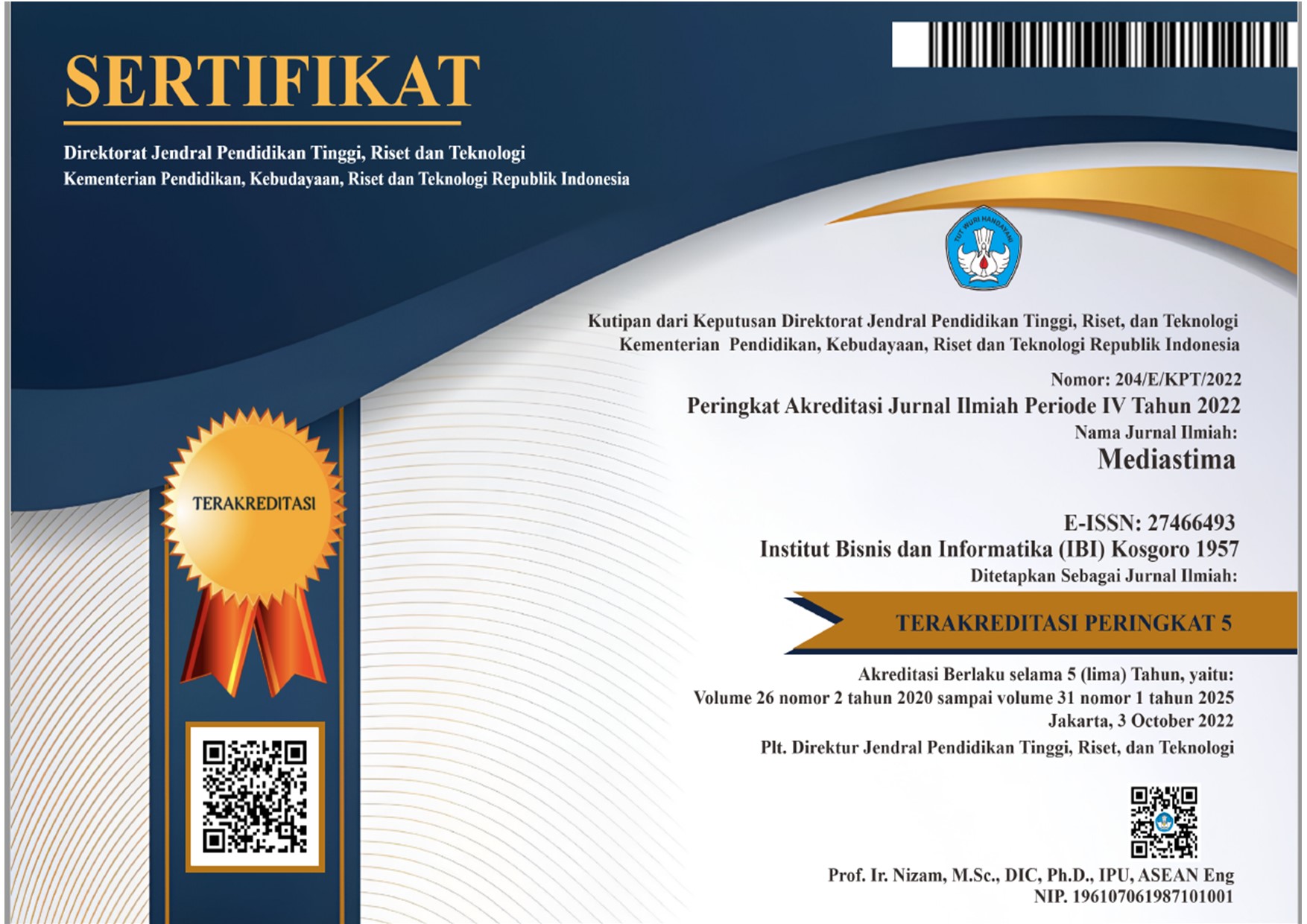Pelarangan Operasi TikTok Shop dan Etnosentrisme Generasi Z Indonesia
DOI:
https://doi.org/10.55122/mediastima.v29i2.1005Keywords:
Etnosentrisme, Generasi Z, TikTok ShopAbstract
TikTok sebagai salah satu media sosial bertransformasi menjadi tempat berjualan yang masih belum sesuai dengan aturan dari e-commerce yang berlaku di Indonesia. Hal ini berujung dengan penutupan TikTok shop yang berdampak baik pada produsen maupun konsumen Indonesia, tidak terkecuali pada pola konsumsi generasi Z. Tujuan penelitian adalah untuk menganalisis faktor-faktor yang memengaruhi etnosentrisme generasi muda di Indonesia (pada kasus generasi Z di wilayah Jabodetabek) terkait produk luar negeri di platform TikTok shop. Penelitian ini menggunakan data primer yang bersumber dari survei menggunakan kuesioner pada google form. Penelitian dilaksanakan pada bulan September sampai Oktober 2023 dengan lokasi penelitian adalah Jakarta, Bogor, Depok, Tangerang dan Bekasi. Metode sampling yang dilakukan adalah dengan menggunakan accidental dan snowball sampling, dimana link survei disebarkan secara sengaja kepada generasi Z. Responden yang mengisi survei ini dibatasi pada generasi Z yang berusia diantara 17 sampai usia 25 tahun. Metode analisis yang digunakan adalah analisis statistik deskriptif untuk menggambarkan karakteristik responden dan analisis structural equation model (SEM) untuk menjawab tujuan penelitian ini. Adapun jumlah responden yang diperoleh adalah sebanyak 131 sampel. Hasil penelitian menunjukkan bahwa sebagian besar responden setuju dengan penutupan operasi TikTok shop. Mayoritas responden generasi Z juga menyatakan bahwa mereka peduli pada negara asal produk yang dibeli, sehingga mereka banyak yang membeli produk dari TikTok shop hanya dari penjual dalam negeri. Faktor yang dinyatakan memiliki hubungan langsung yang signifikan pada etnosentrisme generasi Z di Indonesia terkait dengan persepsi ancaman dan inersia pembelian. Etnosentrisme generasi Z juga sangat dipengaruhi kepercayaan terhadap produk dalam negeri yang menunjukkan bahwa generasi Z masih memiliki jiwa patriotisme yang tinggi. Generasi Z juga memiliki kepedulian pada kondisi pengangguran dalam negeri jika membeli dari luar negeri yang artinya dapat mengancam produksi domestik.
Downloads
Published
How to Cite
Issue
Section
Accepted 2023-10-27
Published 2023-10-30






